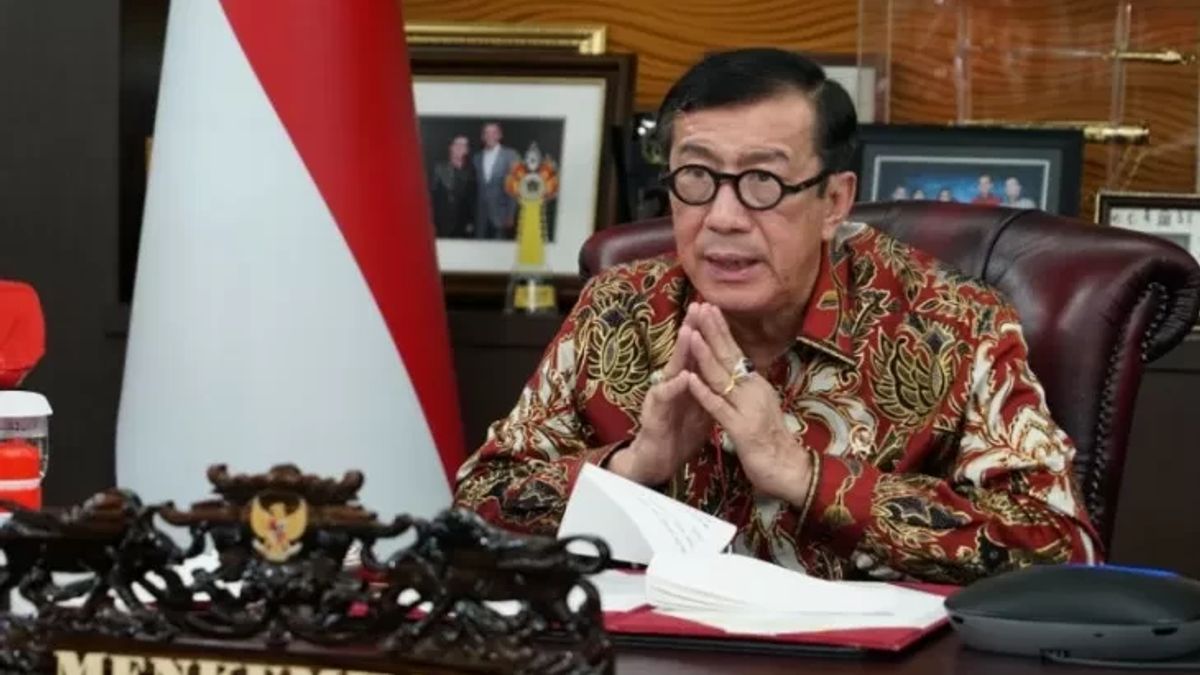JAKARTA - Minister of Law and Human Rights (Menkumham) Yasonna H Laoly explained the new Criminal Code (KUHP) to American Indonesian Chamber of Commerce (AICC).
"After 77 years of independent Indonesia, we can adopt our own Criminal Code where the process has been going on since 1963," he said at a virtual AICC meeting, Friday, January 13, which was confiscated by Antara.
First, Yasonna explained about the death penalty. The new Criminal Code has a new approach as a compromise between retentionist groups and abolitionists in imposing the death penalty.
In the new Criminal Code, the death penalty is an alternative punishment with a probationary period of 10 years which can be changed to life imprisonment, or a fixed sentence based on an objective assessment of the good behavior of prisoners.
Furthermore, Yasonna straightened out perceptions related to freedom of expression. The new Criminal Code clearly distinguishes between criticism and insults. Conducting criticism based on the public interest is not a crime, but an insult against anyone is a racial crime that can be reported by the attacked individuals.
"This norm is actually applied in many countries. The Criminal Code has just regulated it as a complaint offense, which can only be submitted by the person concerned, not the public or sympathizers and volunteers," he said.
In addition, the Criminal Code, which was passed on December 6, 2022, includes two core crimes, namely genocide and crimes against humanity. The sanctions are processed based on the International dress code, namely a process involving the opinion or group decision by a panel of experts.
An extraordinary crime against humanity is a violation of human rights and will be referred to the Indonesian Human Rights Court.
Furthermore, said the Minister of Law and Human Rights, the new Criminal Code does not discriminate against women, children and other minority groups, including religion or any belief. This is because all relevant provisions from the Criminal Code were previously refined.
This includes accommodating universally applicable legal principles such as the International Convention on Civil and Political Rights (New York Convention 1966).
At the meeting, Yasonna said the Criminal Code only had a grace period of three years before it was effective. Currently, or during the transition period, discussions are held with various stakeholders in order to minimize the pros and cons.
"We will also prepare various regulations implementing the Criminal Code, in order to minimize the potential for abuse of law enforcement authority," he explained.
Finally, the new Criminal Code is expected to be a criminal law reform with a different criminal system approach. Prioritizing corrective justice, rehabilitation and restorative justice as alternative criminal sanctions in addition to imprisonment in the form of fines, social work and supervision.
This was with the aim of replacing the Dutch colonial Criminal Code which had been applied rigidly and had no alternative sanctions other than imprisonment.
The English, Chinese, Japanese, Arabic, and French versions are automatically generated by the AI. So there may still be inaccuracies in translating, please always see Indonesian as our main language. (system supported by DigitalSiber.id)













